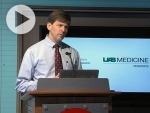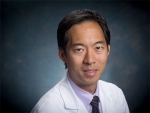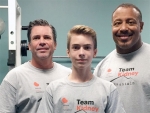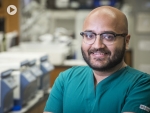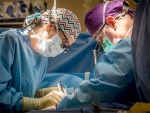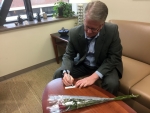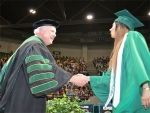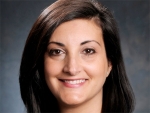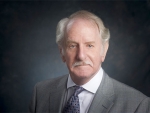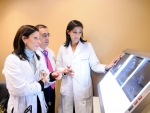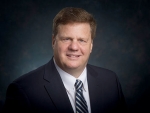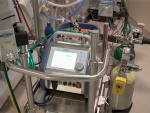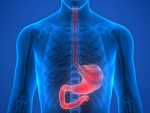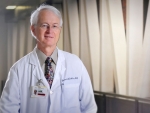Displaying items by tag: department of surgery
David Kimberlin, M.D., vice chair of Pediatrics and co-director of the Division of Pediatric Infectious Diseases, is a physician at Children’s of Alabama. He is the editor of the American Academy of Pediatrics’ Red Book, which establishes which vaccines should be given, when and to whom.
Tagged under
UAB surgeons performed 385 transplants in 2016, and more than 33,600 transplants were performed nationwide.
Tagged under
Tagged under
A meeting for advice on a business matter turned into “a moment of divine intervention,” leading one Birmingham man to become a living donor.
Tagged under
Divyank Saini is one of 17 employees who interpret lab samples to determine whether living- and deceased-donor transplants are possible. Now he is a donor in the world’s longest kidney transplant chain.
Tagged under
Mississippi man transplanted at UAB is among the first HIV-positive to HIV-positive transplant recipient in the United States since implementation of the HOPE Act.
Tagged under
The Donate Life Parade Float honors donors, recipients and others who have been touched by organ, eye and tissue donation.
Tagged under
An estimated 625 students will participate in the commencement ceremony, and 745 students will graduate. The university’s highest degrees will be conferred on 79 students from 18 states and seven countries in the doctoral hooding ceremony.
Tagged under
- release
- college of arts and sciences
- graduate school
- school of health professions
- school of public health
- department of health services administration
- school of medicine
- department of surgery
- department of vision sciences
- cell, molecular and developmental biology graduate program
- school of education
- collat school of business
- school of nursing
- school of optometry
- school of dentistry
- school of engineering
- commencement
- university events
- global and community leadership honors program
UAB has named breast cancer surgeon Helen Krontiras as the director of the Division of Surgical Oncology.
Tagged under
Cooper will join Joseph Tector as co-director of UAB’s Xenotransplantation Program with their research geared toward using genetically modified pigs to facilitate kidney transplants in humans.
Tagged under
An Alabama woman asked her primary care physician one question that may have saved her life — is it time for me to have a mammogram?
Tagged under
James Bibb, a highly regarded scientist in neurology and cancer, will become the vice chair for Basic Research in UAB’s Department of Surgery.
Tagged under
UAB Hospital was honored with a Gift of Life award for educational efforts provided to patients, families and the community and for donor family recognition by the AOC.
Tagged under
Adam Beck, M.D., has been named director of surgery in the Division of Vascular Surgery and Endovascular Therapy at UAB.
Tagged under
UAB’s program for extracorporeal membrane oxygenation, or ECMO, has won a Gold Level Award for Excellence.
Tagged under
The Metabolic and Bariatric Surgery Accreditation and Quality Improvement Program says UAB meets all criteria as a Comprehensive Center to deliver safe, high-quality bariatric patient care.
Tagged under
Vape pens are catching on, but there is a hidden danger. They sometimes blow up, and a UAB burn surgeon says the results are decidedly unpleasant.
New Living Donor Navigator Program tailored to African-Americans and a new Facebook app aim to increase access to living kidney transplants and reduce the number of patients awaiting transplant.
Tagged under
The new Kirklin Institute for Research in Surgical Outcomes positions UAB as a world leader in improving patient outcomes.
